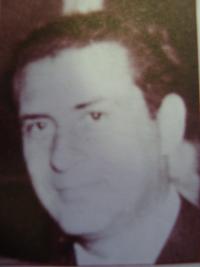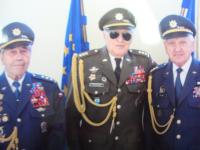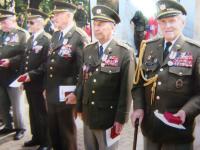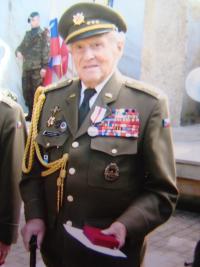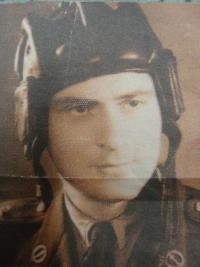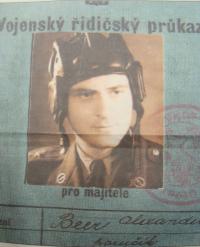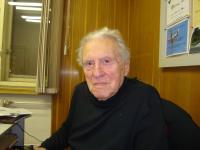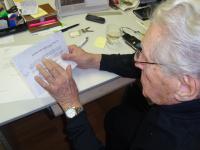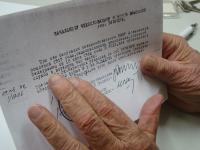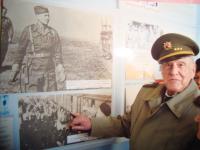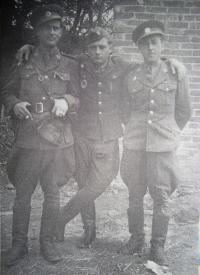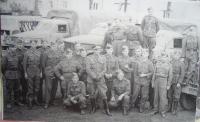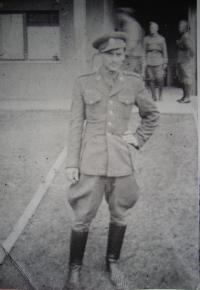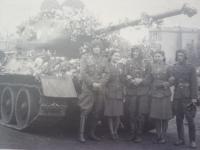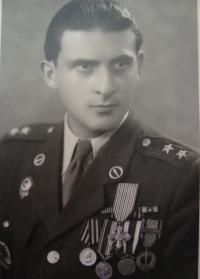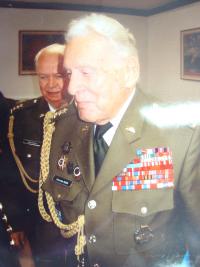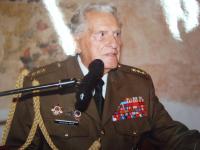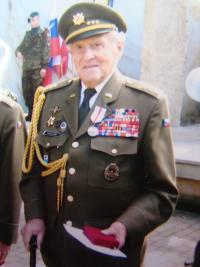War is war, everything is allowed
Colonel in retirement Alexander Beer was born February 7, 1917 in Vranov nad Topľou in Slovakia. He studied grammar school and a higher school of textile industry in Brno. Before the occupation he was employed in the industry and in 1939 he decided to escape to England via Switzerland. He was arrested on the Swiss border, imprisoned in Germany for three weeks and then deported to Prague. This however didn’t prevent him from another escape, this time to Poland. There he met his brother who then fought in the western army in Dunkerque in 1944. After the attack on Poland, Alexandr Beer escaped to the Soviet Union with a group one of whose members was Communist senator Antonín Zmrhal. It was probably thanks to him that the Russians treated the group of refugees well and after a week of interrogations and a three-week internment in the village of Opalicha they offered them work. Alexandr Beer took a job in the textile industry and he began working in a factory south of Moscow. After June 22, 1941, when the Soviet Union was attacked by Germany, he went to Karagand in Kazakhstan, where he worked in the textile industry as well. As soon as he learnt about Svoboda’s army, which was being formed in Buzuluk, he decided to move there. He even had to write a letter to colonel Svoboda in order to be released from the factory in Karagand and allowed to join Svoboda’s army. He took part in the fighting for Sokolovo, where he served as a commander of a mortar squad. He was wounded for the first time here and he got to a hospital in Michurinsk. After his recovery - probably by mistake - he got to Kursk where the greatest tank battle was fought. Alexandr Beer was however sent to the staff and thanks to his knowledge of foreign languages he served as an interpreter during interrogations of German officers. Then he got to Novochopersk to the Czechoslovak soldiers. He took part in the battles for Kiev, Bílá Cerekev, and Zhashkov, where he served as tank commander. After their arrival to Volhynia he was sent to Sadagura as a commander of a tank training centre for Volhynian Czechs. He took part in the Carpathian-Dukla operation, where he was wounded again in Nižný Komárnik, and in the Ostrava operation. In 1946 he demobilized. After the war he began working in the company Centrotex and in 1951, even though he had become a member of the Communist Party of Czechoslovakia before, he was arrested for 48 hours. Although this was then recognized as a mistake, he was not allowed to leave his house for two weeks or to make any phone calls. He terminated his contract with Centrotex, but he continued working in the textile industry. In 1968 he was expelled from the Party, but in spite of that he got a job at the Ministry of Industry. After the Velvet Revolution he began working in a multinational company and he thus retired as late as 2005. He was the vice-chairman of the Czechoslovak Association of Legionnaires. Died in in december 2015.

